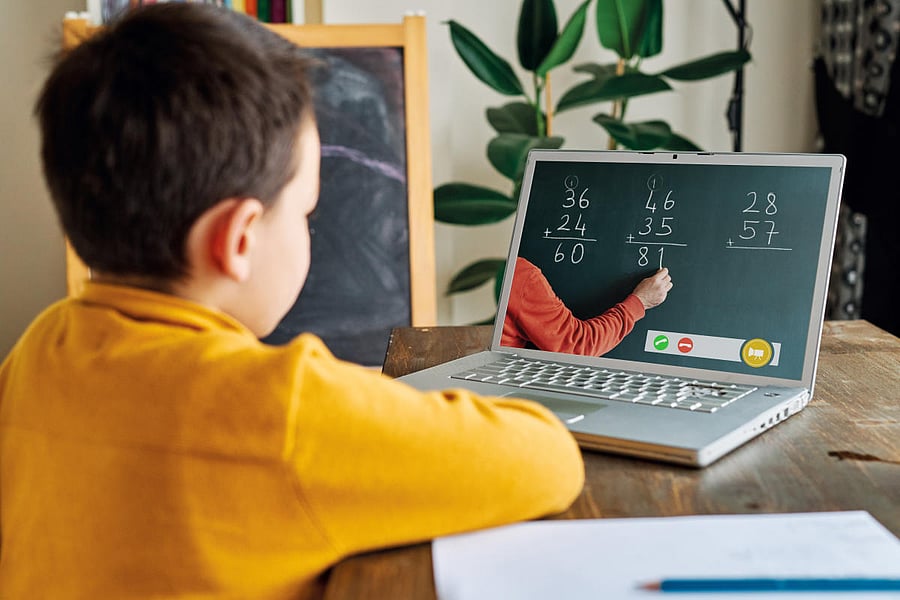Transformation of challenges into opportunities by unravelling new avenues, alternatives and substitutes is demonstrated only by a few leaders endowed with indomitable will and unique skills to change the established trajectory of people’s life and living.
For instance, the vision and mission of life of great crusaders like Mahatma Gandhi, Nelson Mandela and Martin Luther King, to name a few, exemplify adoption of novel methods of tackling societal malaises. As ‘necessity is the mother of inventions’, certain vicissitudes, natural or unnatural, extract the best of people in terms of innovation and salvation for survival. Covid-19 is a formidable health hazard necessitating standard operating procedures [SOPs] for our activities in a host of sectors.
Prevalence of corona pandemic is a bewildering incident that has threatened human lives globally despite the phenomenal progress mankind has made in a slew of domains including science and technology. However, it is hoped that human ingenuity would succeed in redressing the miseries of this draconian disease of the present as well, as it did in the past in controlling several dreaded infectious diseases.
Good education is the driving force underneath any development schemes such as ‘perform, reform and transform’ and ‘Atmanirbhar Bharat’. Deployment of digital technology for online and distance education henceforth will not be a temporary measure but is a long-lasting one with or without pandemics. The sooner our schools, colleges and universities train teachers and students alike in digital skills, the better it is for improvisation of academic activities. Use of today’s tools and technologies to surmount today’s challenges will greatly enhance the impact of teaching and learning.
Sound and sustainable learning involves learning, unlearning and relearning. This mantra implies that our teachers must stay informed, updated and relevant to the profession. Nobody wants, much less in teaching, non-performers and deadwoods. It is the intellectual vigour and scholarship of our graduates that decide the pace of progress of a knowledge economy, and in this modulation, the role of conscientious, competent and technology-savvy teachers is indeed crucial.
The pandemic Covid-19 has affected a large spectrum of our activities including the vital aspect - education. This has emerged as a great shock to our age-old, if not archaic, education system with the dual characteristics of teaching and learning in a ‘closed’ and well-established teacher-centric system. However, in today’s world, technology is indispensable to fields such as business, industry, health and education.
In the corporate world, nearly 30% of employees have already started working from home [WFH]. Employees are also encouraged to work from anywhere [WFA]. Upskilling and reskilling are mandatory to retain jobs. In tandem with this scenario, a large number of new start-up enterprises for skilling - both technical and managerial staff - have sprung up in recent times. In the IT sector, it was reported that nearly 50% of the employees need reskilling. Someone who remains unskilled becomes obsolete and redundant.
Looking around, our teachers in schools, colleges and universities appear to be keeping their fingers crossed in a state of helplessness. Only a few private institutions are believed to have taken recourse to online education although its impact is yet to be assessed. It is gathered that majority of our teachers are either not atuned to offer online courses that require meticulous preparation and excellent articulation for effective communication or have no appetite for reorientation and relearning.
NEP-2020
This is really worrisome and frustrating. The objectives of the National Education Policy-2020, however lofty and laudable, cannot be realised unless our teachers at all levels develop a frame of mind to radically change their approach to teaching and learning. This is not an option but wanton obligation that mandates serious cognizance.
Inasmuch as the teachers need to reorient, our students also have to switch to new modes of online learning (barring laboratory exercises) by giving up the age-old practice of ‘rote learning’ - a memory recall system based on well-preserved, if not fossilised, notes of teachers. The adaptive radical change is required by both sets of stakeholders.
As regards plasticity to adopt new modes, this is not applicable to Covid-19 alone. In fact, nobody knows what is in store for us in the near/distant future in respect of natural and unforeseen disasters. Apart from medical, social and economic preparedness, we should now earnestly consider technological channels to ameliorate the impact of natural calamities. Therefore, it is inevitable that our system of education for the present as well as the one for future is adequately ‘loaded’ with learner-friendly keys and safeguards.
No country can progress in the absence of a vibrant, productive and responsive education system. In private sectors, employees are compelled to switch jobs depending on exigencies. In the current trying situation, our teachers cannot remain docile, degenerative and obsolete by being complacent of job security and good salary. They have to respond to the vicissitudes of the situation and exhibit high degree of adaptability.
Digital learning and online education shall stay even during the post-Covid period. Hereafter, we need to adopt a kind of hybrid strategy in that conventional classroom teaching is reinforced by virtual mode as a complementary approach to learning. Use of technology is not only the prerogative of elite schools and technical courses but is also quite relevant to a gamut of non-technical programmes. University degrees, either in singles or multiples, in course of time, may not be lifetime guarantees of jobs and careers.
The NEP-20 promises to rejuvenate our education system through
i) vocational and skill-oriented education
ii) inclusion of technology like AI, robotics, cloud computing and machine learning
iii) online learning and distance education
iv) increased expenditure (6% of GDP)
v) freedom to study the subject of choice, etc.
The challenge is to implement its envisioned goals with passion, mission and aggression. Whether one desires it or not, future programmes of teaching-learning will be replete with technological innovations, invasions and interventions.
(The writer is former Vice Chancellor, University of Mysore and President, Forum of Former Vice Chancellors of Karnataka)
